The Gorgon Nut or Makhana, an aquatic plant seed is mainly grown in Bihar, Assam, West Bengal, Tripura and Odisha. In Bihar alone, it is grown in about 15,000 hectare water-body. About 5 lakh families are directly involved in Makhana cultivation, its harvesting, popping and produce selling. About 7,500 to 10,000 tonnes of popped Makhana are sold every year from Bihar.
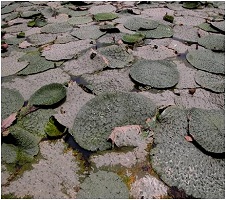
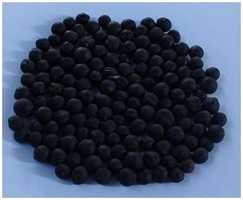
The seeds are roasted and popped manually to obtain a nutritious dry fruit popular in India and across the world. The commercial name of the popped kernel of Gorgon Nut is Makhana. Makhana is very popular among the Indian households for making vegetable curry, sweets and savories of various kinds and for religious rituals.
The Popping of Makhana is a laborious, time intensive and cumbersome process. In a 3 stage manual process, the seeds are roasted in a traditional earthen pot or in cast iron pan at very high temperatures ranging from 250o C to 320o C, tempered for 2 to 3 days, roasted again and popped manually using a mallet. The Malleting after roasting requires highly skilled workers as a few seconds delay in the malleting would lead to poor quality popped makhana.
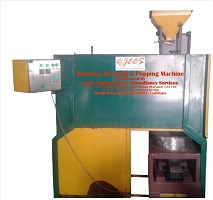
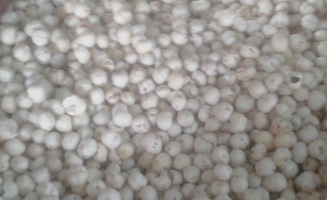
A completely mechanized system comprising of threshing, cleaning, seed grading, drying, roasting and popping operations have been developed and commercialized by ICAR-Central Institute of Post-Harvest Engineering and Technology (CIPHET), Ludhiana. The process has helped to save the poor fishermen from the drudgery and for improving upon their working conditions besides producing high quality makhana for domestic consumption and export markets.
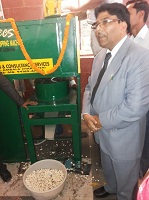
In this process, the roasting is carried out in a closed barrel using the electric heated thermic oil. However, any heating source can be utilized depending upon its availability. The thermally insulated barrel helps in saving the worker from intensive heat and prevents the malleting as the hot roasted seeds automatically hit a closed casin within seconds for breaking the hard roasted seeds for popping. As there is no human intervention between the roasting and popping, the developed system helps in completely saving the operators from intensive heat and boils in the hands. The technology has helped a lot in solving the long due indigenous problem of manual popping of the indigenous crop.
The system further results in reducing the process time from 2 to 3 days to only about 20 h. The quality and market value of Makhana produced using the mechanized process is much better than the manually popped Makhana and, thus, fetches at least Rs. 50/- per kg more than that of the traditional method.
The machine is now being commercially manufactured by two manufacturers and has been installed at 5-6 places in the country. The Makhana has traditionally being grown only in the eastern and north eastern states (mainly Bihar) of India. But, due to the intervention of mechanically popping, the Makhana entrepreneurs in the other regions of the country namely Madhya Pradesh, Himachal Pradesh, Telangana, Haryana, Chhattisgarh and Uttar Pradesh have shown interest in venturing in Makhana cultivation, trading, value addition and marketing. Since, the demand of popped Makhana has risen from the developed countries; the profit of owner of Makhana machine may raise several folds from Rs. 1 lakh to 4-5 lakh in Makhana season.
The Government of Bihar has started giving the subsidy and National Research and Development Corporation (NRDC), Government of India has conferred the Societal Innovation Award in the Year - 2014. With an investment of about Rs. 15 lakh as the fixed cost and about Rs. 5 lakh as the working capital per month, the breakeven point could be reached in 6 months and profit would increase many folds, besides providing the employment to the rural youth. The mechanization of Makhana popping process will lead to increase the cultivation area and, thus, the production of Makhana seeds, will lead to improve the livelihood of poor community engaged in Makhana cultivation and processing in very near future.
After the development, the ready-to-constitute Makhana Kheer (milk-based pudding) mix was developed from the second or third grade of Makhana. The 3 entrepreneurs from Darbhanga, Bihar; Buddi, Himachal Pradesh and Rajendra Nagar, Hyderabad, Telangana have taken licenses for its manufacturing and marketing.
In this way, a successful value chain of indigenous crop using the indigenous technology is in place and has put momentum in further research.
(Source: Agricultural Engineering Division, ICAR)








Like on Facebook
Subscribe on Youtube
Follow on X X
Like on instagram